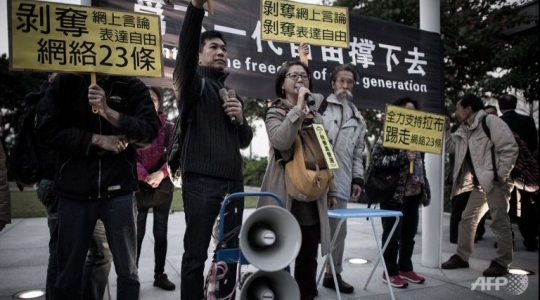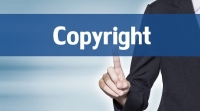If someone streams music or movies online without permission it is difficult for copyright holders to sue them in Hong Kong.
HONG KONG: If someone streams music or movies online without permission it is difficult for copyright holders to sue them in Hong Kong.
That is due to its copyright law dating back to 1997, before the Internet became widely available, and something movie and record companies, as well as the US government, have pressured the territory to fix.
But those efforts have run into strong resistance and are now on the verge of collapse.
Some young activists are now targeting the government’s bill to update the law.
“It creates a chilling effect for people, and they will stop creating derivative work,” said Glacier Kwong, a spokesperson for Keyboard Frontline.
Activists argue that they frequently use derivative work, or adaptations of pictures, songs and movies, to mock the government and that should not be taken away.
Legal experts like Danny Friedmann from the Chinese University of Hong Kong’s School of Law says their concern might be overdone because the new law specifically allows for satire and parody.
“A lot of that use is already widely accepted within all these categories, and actually in the proposed law there are new categories suggested, which are fine,” he said.
But these netizens have gained support from Pan-democrats in the Legislative Council, who have used filibustering to stall the bill for months.
“If you look at the present political situation, the present government administrative attitude, is there sufficient safeguard for the netizen? And the conclusion is not,” said Legislative Councillor Albert Chan.
What they want is broad protection for anyone who is not using the copyrighted material for profit, including those who live stream computer games.
The government has refused to give ground, saying even though the US has such a fair use principal it is not in line with Hong Kong’s legal traditions, which were inherited from Britain.
It is not willing to drop the bill if it is not passed by Mar 4 so the Legislative Council can move onto other things, including approving the budget.
That decision has surprised both copyright holders and netizens, who admit the language of the Hong Kong bill really is not all that unique. However, they reiterated one concern.
“In many other countries where the copyright law is written exactly the same way as in Hong Kong, they are mostly democratic, and people can trust the democratic regime. In Hong Kong, we are not democratic, and we don’t trust the Hong Kong government at all,” Glacier Kwong said.
Without that trust the copyright bill might soon become the first victim of filibustering but it is unlikely to be the last.
Source: channelnewsasia.com











